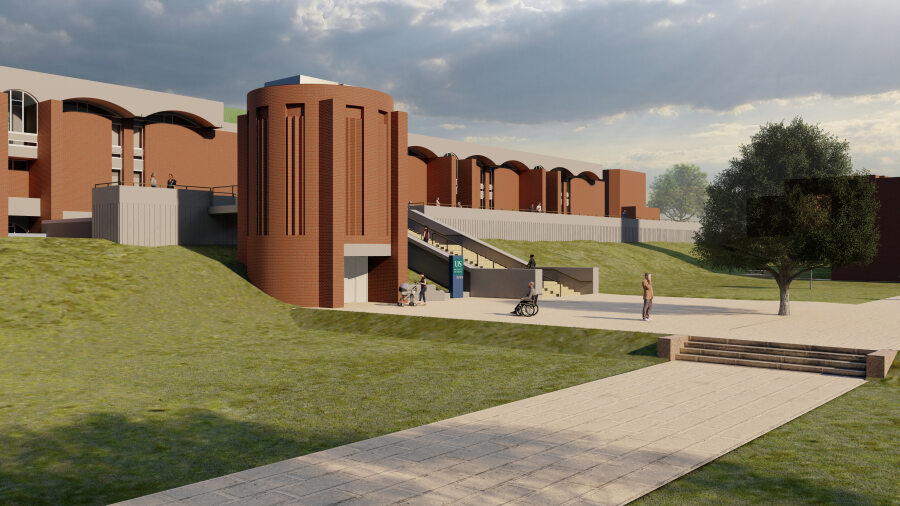Universities are not a place for liberation for both students and staff, according to staff panelists at the University of Sussex Students’ Union’s Liberation Round Table, held on 19 October.
The Liberation Round Table was an open discussion as part of the Students’ Union’s first Democracy Fest. It was hosted by Maozya Murray, the Union’s Diversity, Access, and Participation Officer, with the main theme of the discussion being liberation in personal terms, and in relation to the university. Three panelists discussed instances where the University, instead of being liberating, can be an institution that limits and hinders both students and staff, from rising student fees, scarce disability access on campus, and temporary employment contracts.
The panelists brought in the topic of high student fees, and how high the cost of going to university is in the present. One of the panelists recalled how “there was a time when you were paid to go to university – and that was just normal… And also, you didn’t really have to work – you know, you’ve got a job, being a student – that’s a full time job.”
“Well now, obviously there’s fees, and living costs, that aren’t covered by anyone else… further down the class hierarchy, the less help you have, the more work you have to do to raise the money, or the more debt you have to get in to be able to get through the process [of acquiring an education],” they said.
Tuition fees for UK Home students are currently capped at £9,250 for the 2023/24 to 2024/25 academic years. Data from WordsRated demonstrates that the current fees mark a 925% increase since 1998, with tuition fee caps increasing 37% each year on average. International students studying in the UK must pay at least double the tuition of students with settled status, with fees ranging from £11,400 – £38,000 per year.
The panelists also mentioned the lack of disability access on parts of campus, and how as a wheelchair user, it can be extremely difficult to get to certain places around the University. The University has recently announced plans to transform the campus library to make it more accessible for wheelchair users, fitting in a lift to take users from the square to a level main entrance into the library, and a new ramp to the Arts and Silverstone buildings. According to AccessAble, wheelchair users currently have to go around the library building to the accessible entrance at the Institute of Development Studies. This structural change comes 62 years after the campus was first built.

The panelists also discussed the university in relation to socio-political issues that matter to students. For the past few months, Sussex students have been hosting solidarity rallies at the university’s Library Square to protest recent Israeli attacks on Gaza (See “Students Voice Support for Palestine”). These rallies are open to the public, where speakers of all backgrounds, Palestinian, Jewish, or neither, can step forward to express their thoughts and feelings on the conflict.
The University of Sussex has stated that ‘[it] is clear that we [the university] do not take an institutional position on complex global events,’ and that they ‘encourage and support students and staff to freely express their views and beliefs within the law, and with respect for, and consideration of, other members of the community.’
This contrasts with the university’s Students’ Union, which recently passed a motion to declare their solidarity with the people of Palestine and upholding academic freedom.
Not only is the university not a liberating place for students, but it also isn’t for staff, suggested the panelists.
One of the panelists touched on matters pertaining to race equity in the university, and the “precarious contracts” that several of the university staff are employed on, including themself. The University and College Union (UCU) has reported of “precarious work in higher education”, with Black, Asian, and minority ethnic staff being “significantly more likely to be on a fixed-term contract than white staff.”
“You can’t plan, you can’t buy a house. It’s really difficult to put down roots if you might have to move this year, move next year,” the panelist claims. They also discussed how such lack of secure work affects not just staff of colour, but others as well, such as early scholars and women.
While the university might not be a place for liberation, the panelists argued that there is more to it than that:
“… And then I was thinking, is the university a site of freedom? No. Is it a site for the struggle for liberation? Yes. And it has to be”
one of the panelists declared.
The panelists then discussed how to be liberated is to be collectively freed, and how personal freedom does not bring about true liberation. In a university setting, the panelists agree that “when both staff and students work together”, collective liberation can be achieved for all.
“But, there’s a hopeful thing because all of those places are also – they might not be free, they might not be there already, but they are sites for the struggle for liberation… And I think that’s the best thing about being in the university,” a panelist concluded.
